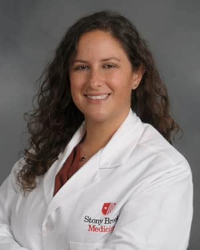Message from the Program Directors

FACS, FASMS
Program Director
As Program Directors, we are delighted to welcome your interest in our advanced fellowship, which has been successfully training future leaders in this specialized field since 2015. Our program at Stony Brook University offers exceptional exposure to the full spectrum of upper gastrointestinal surgery, focusing on cutting-edge minimally invasive, foregut, and bariatric surgery techniques. We take immense pride in the distinguished surgeons we've graduated, many of whom have become prominent leaders in both academic and non-academic practices. This fellowship provides an ideal environment for dedicated surgeons seeking to master complex procedures, contribute to innovation, and build a career defined by excellence.
Program Director
Chief, Division of Bariatric, Foregut and Advanced GI Surgery
Director, Bariatric and Metabolic Weight Loss Center
Tenured Professor of Surgery - Bariatric Surgery, General Surgery, Foregut Surgery, Robotic Surgery

Associate Program Director
Amy Rosenbluth, MD
Associate Program Director
Assistant Professor of Surgery - Bariatric Surgery, General Surgery, Foregut Surgery, Robotic Surgery
The Stony Brook University Department of Surgery and the Division of Bariatric, Foregut and Advanced GI Surgery supports one Advanced GI/MIS/Bariatric/Foregut fellow. The fellow works closely with three bariatric/MIS surgeons as well as a full multidisciplinary support team for both Bariatric and GERD centers.
Multiple techniques will be learned including endoscopic, open, laparoscopic and robotic for a broad range of cases. Expected cases include (but are not limited to): Roux-en-Y Gastric Bypass, Sleeve Gastrectomy, Duodenal Switch, Paresophogeal Hernia Repairs, Fundoplications and Inguinal and Ventral Hernia Repairs.
The fellowship is a one-year program and includes attending level, backup-supported, general surgery calls to better support your transition from residency to attending. The fellow will participate in clinic to gain an understanding for the full perioperative experience and care of patients.
The fellow is encouraged to participate in research, including submitting abstracts, presenting papers and publishing their research findings. Support will be provided to attend one national conference a year, as well as participate in educational courses throughout the year.
Application to our program is through the Fellowship Council Match. For more information, please email the Associate Program Director, Amy Rosenbluth.
